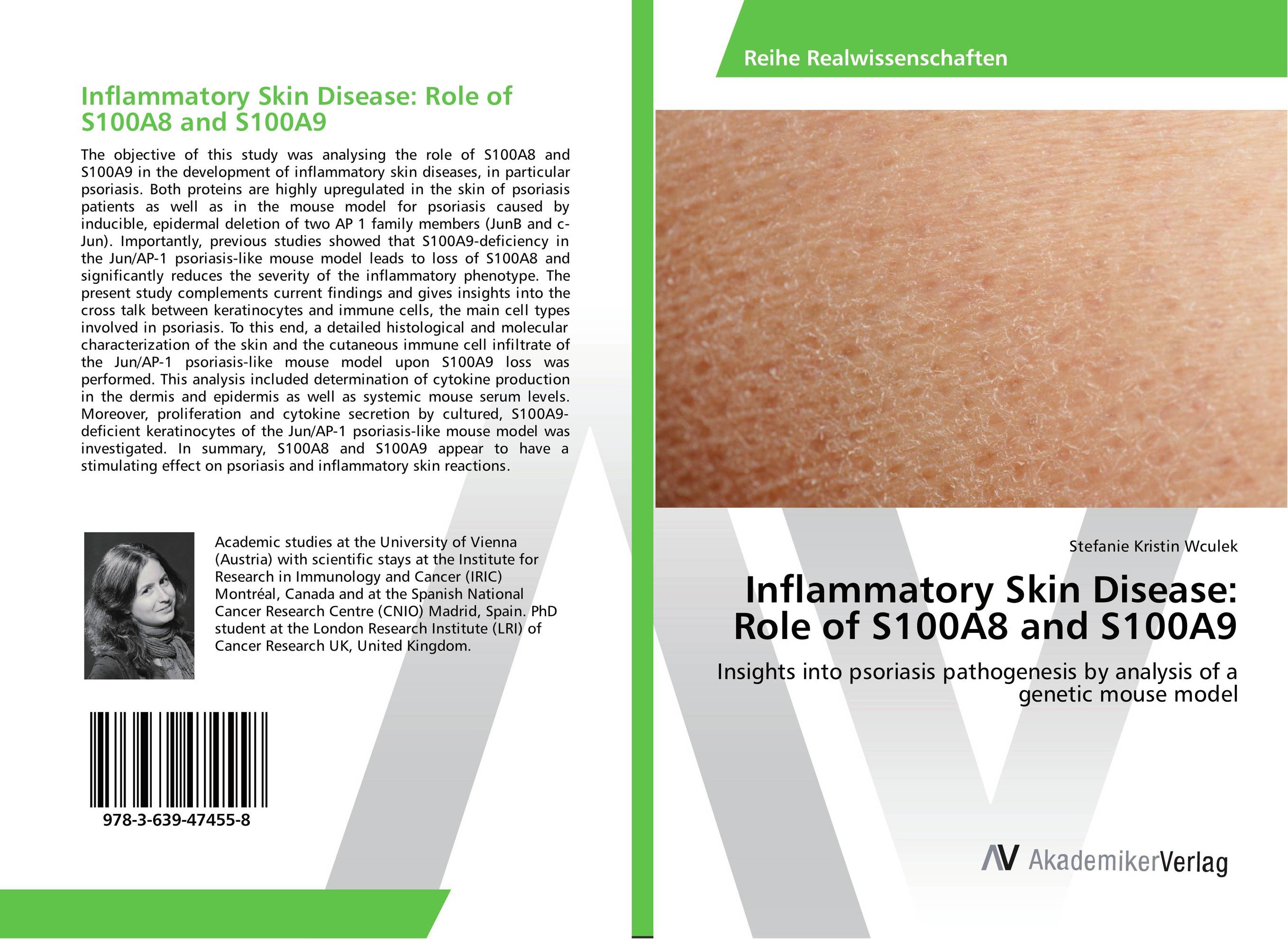| Поиск по каталогу |
|
(строгое соответствие)
|
- Профессиональная
- Научно-популярная
- Художественная
- Публицистика
- Детская
- Искусство
- Хобби, семья, дом
- Спорт
- Путеводители
- Блокноты, тетради, открытки
Inflammatory Skin Disease: Role of S100A8 and S100A9. Insights into psoriasis pathogenesis by analysis of a genetic mouse model

В наличии
| Местонахождение: Алматы | Состояние экземпляра: новый |

Бумажная
версия
версия
Автор: Stefanie Kristin Wculek
ISBN: 9783639474558
Год издания: 2014
Формат книги: 60×90/16 (145×215 мм)
Количество страниц: 92
Издательство: AV Akademikerverlag
Цена: 26305 тг
Положить в корзину
| Способы доставки в город Алматы * комплектация (срок до отгрузки) не более 2 рабочих дней |
| Самовывоз из города Алматы (пункты самовывоза партнёра CDEK) |
| Курьерская доставка CDEK из города Москва |
| Доставка Почтой России из города Москва |
Аннотация: The objective of this study was analysing the role of S100A8 and S100A9 in the development of inflammatory skin diseases, in particular psoriasis. Both proteins are highly upregulated in the skin of psoriasis patients as well as in the mouse model for psoriasis caused by inducible, epidermal deletion of two AP 1 family members (JunB and c-Jun). Importantly, previous studies showed that S100A9-deficiency in the Jun/AP-1 psoriasis-like mouse model leads to loss of S100A8 and significantly reduces the severity of the inflammatory phenotype. The present study complements current findings and gives insights into the cross talk between keratinocytes and immune cells, the main cell types involved in psoriasis. To this end, a detailed histological and molecular characterization of the skin and the cutaneous immune cell infiltrate of the Jun/AP-1 psoriasis-like mouse model upon S100A9 loss was performed. This analysis included determination of cytokine production in the dermis and epidermis as well as systemic mouse serum levels. Moreover, proliferation and cytokine secretion by cultured, S100A9-deficient keratinocytes of the Jun/AP-1 psoriasis-like mouse model was investigated. In summary, S100A8 and S100A9 appear to have a stimulating effect on psoriasis and inflammatory skin reactions.
Ключевые слова: Inflammation, S100A8, S100A9, Psoriasis, Skin, Mouse model, Activator protein 1, Keratinocytes, Immune Cells



